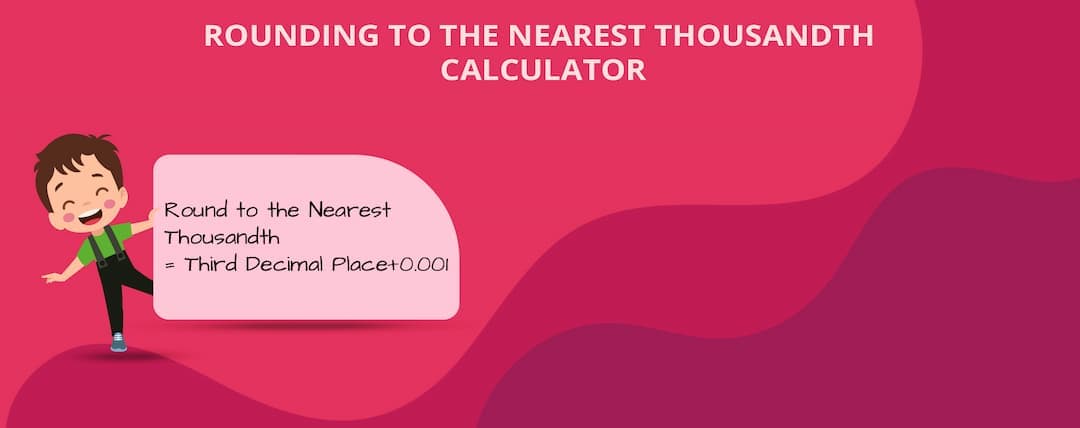
Admissions Open for

Admissions Open for
Rounding to the Nearest Thousandth
Rounding to the nearest thousandth is a mathematical process used to simplify numbers to the nearest multiple of 0.001. It is commonly employed in fields such as engineering, science, and finance to facilitate easier and more manageable calculations. Rounding is a crucial mathematical concept that simplifies numbers while preserving their overall value. When it comes to rounding to the nearest thousandth, precision is key. In this guide, we will explore the essentials of rounding to the nearest thousandth, including the methodology, formula, and practical examples.
What is rounding to the nearest thousandth ?
Rounding to the nearest thousandth is the process of approximating a number to the closest value with three decimal places.
Why is rounding to the nearest thousandth important ?
It is essential for maintaining accuracy in various mathematical and scientific calculations where precision matters.
When should I round to the nearest thousandth ?
Round to the nearest thousandth when dealing with measurements or data that require a high degree of accuracy.
Formula
To round a number to the nearest thousandth, examine the digit in the fourth decimal place. If it is 5 or greater, round up the third decimal place. If it is less than 5, keep the third decimal place unchanged.
Round to the Nearest Thousandth = Third Decimal Place+0.001
Round to the Nearest Thousandth = Third Decimal Place+0.001 if the fourth decimal place is 5 or greater.
Examples:
12.34567
After rounding of to the nearest thousandth 12.346
8.91234
After rounding of to the nearest thousandth 8.912
15.67895
After rounding of to the nearest thousandth 15.679
Frequently Asked Questions
Yes, the process is the same for negative numbers. Simply apply the rounding rules while considering the sign.
Rounding to the nearest thousandth maintains a high level of precision suitable for scientific and mathematical applications.
In such cases, round up the third decimal place.
Popular Searches
- NCERT Solutions for Class 1 subjects
- NCERT Solutions for Class 2 subjects
- NCERT Solutions for Class 3 subjects
- NCERT Solutions for Class 4 subjects
- NCERT Solutions for Class 5 subjects
- CBSE School In Aurangabad
- CBSE Schools In Bangalore
- CBSE School In Bhopal
- CBSE Schools In Chennai
- CBSE Schools In Delhi
- Best CBSE Schools In Gurgaon
- CBSE School In Hyderabad
- CBSE School In Indore
- CBSE School In Jabalpur
- CBSE Schools In Jaipur
- CBSE Schools In Kolkata
- CBSE Schools In Mumbai
- CBSE Schools In Nagpur
- CBSE Schools In Pune
- Top CBSE School In Rohtak
- Best CBSE Schools In Sonipat











